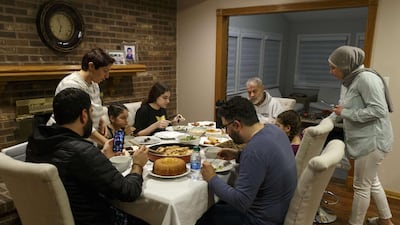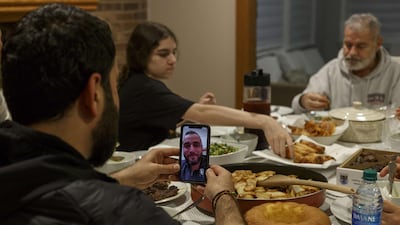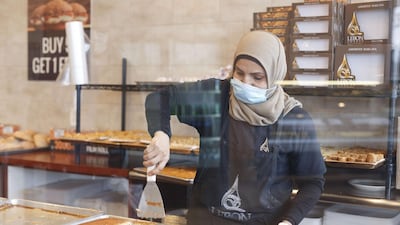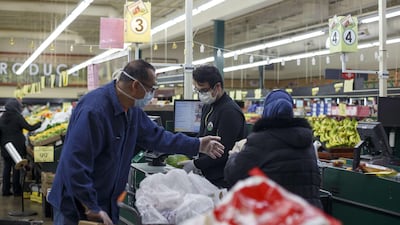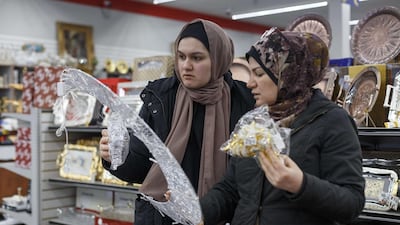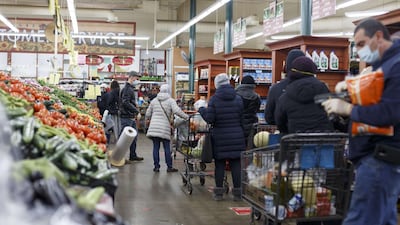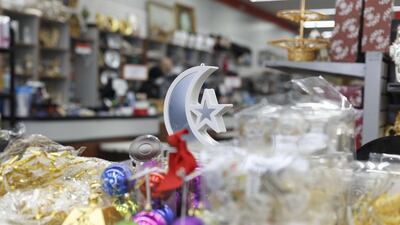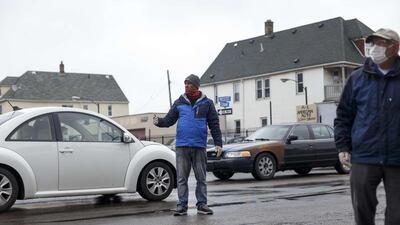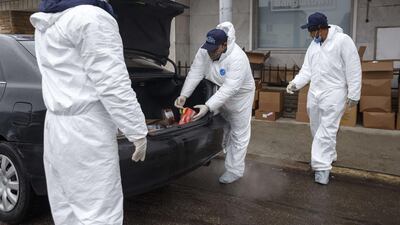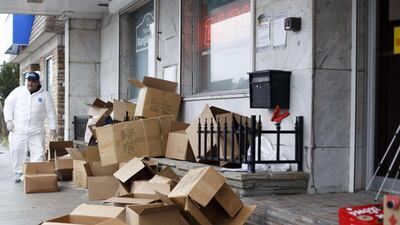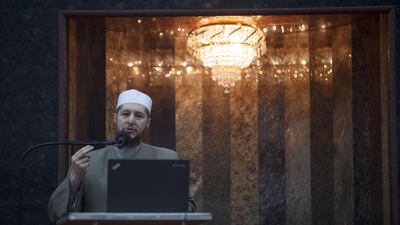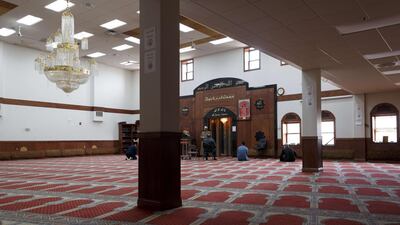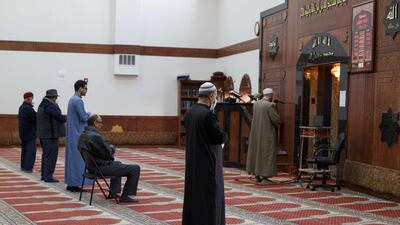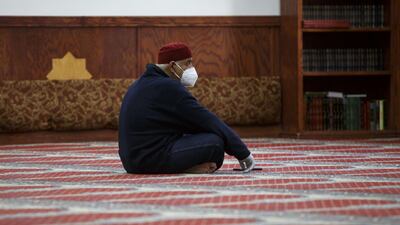Several of the areas of the US outside New York that have been hardest hit by the coronavirus pandemic are also home to large Arab-American communities. Now, at the start of Ramadan, worries increase that cases could rise in the community unless action is taken to prevent the spread as America tops a million cases of Covid-19 – a third of all confirmed patients in the world.
Mosques and other places of worship remain closed to prevent the spread of the virus and while some restrictions on going out are being lifted, the traditional gatherings of friends and family for the post-sunset breaking of fast during the holy month will not be possible. Visits between homes have been banned in states such as Michigan, home to hundreds of thousands of Arab-American Muslims.
The restrictions have prompted changes to age-old customs. In Dearborn, Michigan, the American Moslem Society has started a twice-weekly online "Quran night" for post-iftar recitations and discussions via Zoom on Mondays and Fridays.
For Issam Koussan, owner of the Super Greenland Market in Dearborn, the holy month usually brings a spike in customers stocking up on Middle Eastern delicacies during the holy month. But not this year.
"It's really tough this year dealing with the pandemic. Ramadan is usually a busy season for us; people come to us from all over the state," Mr Koussan said.
Restrictions such as limiting the number of shoppers inside the store at any one time have driven business down. Although he didn't mention it, with one in four in the state out of work the economic toll is likely keeping customers away.
His supermarket isn't immune to this. "We've had to let go some of our employees and pay extra to those who still work with us, because of the risk," he said.
Dearborn is part of Wayne County, home to the biggest and oldest Middle Eastern community in the US with about 200,000 residents of Arab descent. The county is also one of the worst affected in the country, having recorded more than 15,870 cases of Covid-19 – more than 37 US states.
"I get a lot of calls. People are afraid, anxious. They feel uprooted," said Father George Shalhoub of the Saint Mary Antiochian Orthodox Christian church in Livonia, a leafy suburb in Wayne County with large and deep-rooted Lebanese and Palestinian communities. "The church used to be historically the place where people come to as a haven in war or pandemic in the past."
He says he knows of four doctors in the area who contracted the virus, although they have since recovered.
According to figures by the Michigan government, people of Arab background are estimated to account for 1 per cent of infections and fatalities in the state, or around 3,200 and 240 respectively. This rate suggests around 1 in 3 of the people in the state who identify as Arab have been affected.
The figures, however, are thought to be well below actual cases since not all individuals tested are likely to have identified solely as Arab.
The Islamic Centre of America in Dearborn, the largest mosque in North America, has been dealing with a 30 per cent increase in funerals in the last several weeks.
Though officials would not say whether the increase was attributable to Covid-19, a source at the mosque said many of those buried were more than 50 years old and had underlying medical conditions – two factors linked to a higher risk of dying from the virus.
And not everyone has been following the health guidelines. Municipal authorities in Dearborn have repeatedly been forced to call upon residents to practice social distancing with local reports suggesting issues around people visiting each other at home. The Arab American owner of a car wash chain was cited by police for failing to close as per the state stay-at-home order.
Michigan's is not the only Arab American community to feel the wrath of the virus. In neighbouring Illinois, Mansour Tadros, the founder of the Arab-English newspaper The Future News that ran from 2001 to 2019 out of a Chicago suburb, died on March 28 from suspected Covid-19 complications.
But community organisations are trying to help spread information that could keep people safe as well as assist those hit by the virus.
The health crisis has placed increased demands on the Dearborn-headquartered Arab Community Centre for Economic and Social Services (Access), the largest Arab American non-profit in the country. Its almost 500-strong staff, now working remotely, helped with the testing of 4,000 first responders and healthcare workers that allowed many to return to the frontlines.
It has enrolled 300 people in health insurance and assisted thousands more in the Detroit metro area fill out unemployment and other social support claims.
Access has also translated federal and state health warning notices into Arabic for those who do not read English.
"Especially being an immigrant community, the Arab American community is vulnerable. They have less access to basic needs and are experiencing difficulties with unemployment, access to food and health care," said Rana Abbas-Taylor, director of communications for Access. "While we don't track [infection] numbers for the community, we know that they are at risk – just like other communities of colour."
At the same time, Arab-owned businesses are making crucial contributions in the fight against Covid-19. Lebanese immigrant Al Siblani's 3-D printing company EnvisionTEC has been producing 1 million test swabs a day that have been sent out across the country from his Dearborn plant.
The pandemic has already upset plans for the annual Arab American Heritage Month held throughout April, as well as celebrations of the Orthodox Easter on April 19 and now Ramadan.
"People are mostly staying home, they're not socialising [this Ramadan]," says Mr Koussan. "They're mostly doing what they should do."
